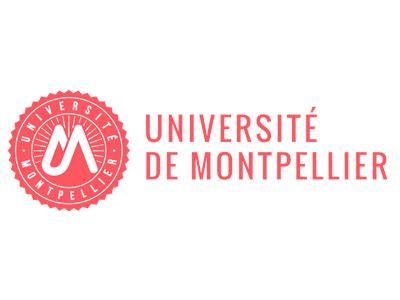Stockage et déstockage du carbone organique des sols alpins : pastoralisme et effet d'héritage // Storage and Release of Soil Organic Carbon in Alpine Environments: Pastoralism and Legacy Effects
|
ABG-131345
ADUM-65214 |
Sujet de Thèse | |
| 23/04/2025 | Contrat doctoral |
Université de Savoie Mont-Blanc
LE BOURGET DU LAC Cedex - France
Stockage et déstockage du carbone organique des sols alpins : pastoralisme et effet d'héritage // Storage and Release of Soil Organic Carbon in Alpine Environments: Pastoralism and Legacy Effects
- Ecologie, environnement
Sol, Carbone, Montagne
Soil, Organic Carbon, Mountain
Soil, Organic Carbon, Mountain
Description du sujet
Ce projet de thèse vise à mieux comprendre les dynamiques du carbone organique des sols (SOC) dans les milieux alpins, en particulier sous l'effet combiné du changement climatique et du pastoralisme. Les sols de montagne, riches en carbone mais vulnérables, sont soumis à des transformations climatiques intenses (réchauffement, réduction de l'enneigement, modification hydrique) et à des évolutions d'usage (modifications des pratiques pastorales, verdissement, retour du loup…). L'objectif est de déterminer dans quelle mesure le pastoralisme influence la dynamique du SOC, d'identifier les héritages des usages et climats passés sur cette dynamique, et de caractériser les mécanismes microbiens et organiques à l'œuvre dans la stabilisation ou la perte de carbone.
La méthodologie s'appuie sur deux approches complémentaires : une approche observationnelle, à travers l'étude de gradients d'usages pastoraux et historiques dans les Alpes (notamment via les « Alpages sentinelles »), et une approche expérimentale combinant manipulations climatiques et différentes intensités de pâturage. Une batterie d'analyses avancées (séquençage, métabolomique, fractionnements organiques, datation, flux CO₂, lysimétrie, marquage isotopique) permettra de mieux comprendre les interactions entre pratiques humaines, communautés microbiennes et dynamiques du carbone. L'étude devrait fournir des éléments clés pour anticiper les réponses des sols alpins aux bouleversements globaux actuels et futurs.
------------------------------------------------------------------------------------------------------------------------------------------------------------------------
------------------------------------------------------------------------------------------------------------------------------------------------------------------------
This PhD project aims to improve our understanding of soil organic carbon (SOC) dynamics in alpine environments, particularly under the combined effects of climate change and pastoralism. Mountain soils, though rich in carbon, are highly vulnerable and currently undergoing significant changes due to warming, altered snow cover, and shifting water regimes. Simultaneously, land use is evolving (e.g., changes in pastoral practices, greening of the alpine zone, return of large predators like wolves). The goal is to determine how pastoralism influences SOC dynamics, to assess the legacy effects of past climate and land use on these dynamics, and to characterize the microbial and organic mechanisms that govern carbon stabilization or loss.
The methodology combines two complementary approaches: an observational one, based on the study of current and historical pastoral gradients in the Alps (especially through the “Alpages sentinelles” network), and an experimental one, involving simulated climate changes combined with varying grazing intensities. A wide range of advanced analyses (including microbial sequencing, metabolomics, organic matter fractionation, radiocarbon dating, CO₂ flux measurements, lysimetry, and isotope labeling) will be used to investigate the interactions between human practices, microbial communities, and SOC dynamics. This research will provide crucial insights into how alpine soils may respond to ongoing and future global environmental changes.
------------------------------------------------------------------------------------------------------------------------------------------------------------------------
------------------------------------------------------------------------------------------------------------------------------------------------------------------------
Début de la thèse : 01/10/2025
La méthodologie s'appuie sur deux approches complémentaires : une approche observationnelle, à travers l'étude de gradients d'usages pastoraux et historiques dans les Alpes (notamment via les « Alpages sentinelles »), et une approche expérimentale combinant manipulations climatiques et différentes intensités de pâturage. Une batterie d'analyses avancées (séquençage, métabolomique, fractionnements organiques, datation, flux CO₂, lysimétrie, marquage isotopique) permettra de mieux comprendre les interactions entre pratiques humaines, communautés microbiennes et dynamiques du carbone. L'étude devrait fournir des éléments clés pour anticiper les réponses des sols alpins aux bouleversements globaux actuels et futurs.
------------------------------------------------------------------------------------------------------------------------------------------------------------------------
------------------------------------------------------------------------------------------------------------------------------------------------------------------------
This PhD project aims to improve our understanding of soil organic carbon (SOC) dynamics in alpine environments, particularly under the combined effects of climate change and pastoralism. Mountain soils, though rich in carbon, are highly vulnerable and currently undergoing significant changes due to warming, altered snow cover, and shifting water regimes. Simultaneously, land use is evolving (e.g., changes in pastoral practices, greening of the alpine zone, return of large predators like wolves). The goal is to determine how pastoralism influences SOC dynamics, to assess the legacy effects of past climate and land use on these dynamics, and to characterize the microbial and organic mechanisms that govern carbon stabilization or loss.
The methodology combines two complementary approaches: an observational one, based on the study of current and historical pastoral gradients in the Alps (especially through the “Alpages sentinelles” network), and an experimental one, involving simulated climate changes combined with varying grazing intensities. A wide range of advanced analyses (including microbial sequencing, metabolomics, organic matter fractionation, radiocarbon dating, CO₂ flux measurements, lysimetry, and isotope labeling) will be used to investigate the interactions between human practices, microbial communities, and SOC dynamics. This research will provide crucial insights into how alpine soils may respond to ongoing and future global environmental changes.
------------------------------------------------------------------------------------------------------------------------------------------------------------------------
------------------------------------------------------------------------------------------------------------------------------------------------------------------------
Début de la thèse : 01/10/2025
Nature du financement
Contrat doctoral
Précisions sur le financement
Concours pour un contrat doctoral
Présentation établissement et labo d'accueil
Université de Savoie Mont-Blanc
Etablissement délivrant le doctorat
Université de Savoie Mont-Blanc
Ecole doctorale
634 Sciences Ingénierie Environnement
Profil du candidat
Le candidat doit absolument avoir une très bonne connaissance des sols. Il devrait idéalement avoir déjà travaillé sur des questions de dynamique de la matière organique et/ou des sols de montagne. Il devra être capable de travailler tant à l'échelle des paysages qu'à l'échelle du laboratoire.
The candidate must have a very good knowledge of soils. Ideally, he/she should already have worked on organic matter dynamics and/or mountain soils. He/she should be able to work at both landscape and laboratory scales.
The candidate must have a very good knowledge of soils. Ideally, he/she should already have worked on organic matter dynamics and/or mountain soils. He/she should be able to work at both landscape and laboratory scales.
30/09/2028
Postuler
Fermer
Vous avez déjà un compte ?
Nouvel utilisateur ?
Besoin d'informations sur l'ABG ?
Vous souhaitez recevoir nos infolettres ?
Découvrez nos adhérents
 ADEME
ADEME  Généthon
Généthon  Nokia Bell Labs France
Nokia Bell Labs France  Tecknowmetrix
Tecknowmetrix  ANRT
ANRT  Aérocentre, Pôle d'excellence régional
Aérocentre, Pôle d'excellence régional  Groupe AFNOR - Association française de normalisation
Groupe AFNOR - Association française de normalisation  CASDEN
CASDEN  Laboratoire National de Métrologie et d'Essais - LNE
Laboratoire National de Métrologie et d'Essais - LNE  TotalEnergies
TotalEnergies  Institut Sup'biotech de Paris
Institut Sup'biotech de Paris  Ifremer
Ifremer  SUEZ
SUEZ  MabDesign
MabDesign  ONERA - The French Aerospace Lab
ONERA - The French Aerospace Lab  MabDesign
MabDesign  ASNR - Autorité de sûreté nucléaire et de radioprotection - Siège
ASNR - Autorité de sûreté nucléaire et de radioprotection - Siège  PhDOOC
PhDOOC  CESI
CESI
-
Sujet de ThèseRef. 131449Paris , Ile-de-France , France
 Mines Paris - PSL, Centre PERSEE & RTE
Mines Paris - PSL, Centre PERSEE & RTEPhD CIFRE RTE - MINES PARIS: Artificial Intelligence for Renewable Energy Forecasting
Expertises scientifiques :Sciences de l’ingénieur - Energie - Mathématiques
-
EmploiRef. 121187Montpellier , Occitanie , France
 Université de Montpellier
Université de MontpellierIngénieur de recherche en biologie
Expertises scientifiques :Biologie - Biochimie - Biotechnologie
Niveau d’expérience :Confirmé


